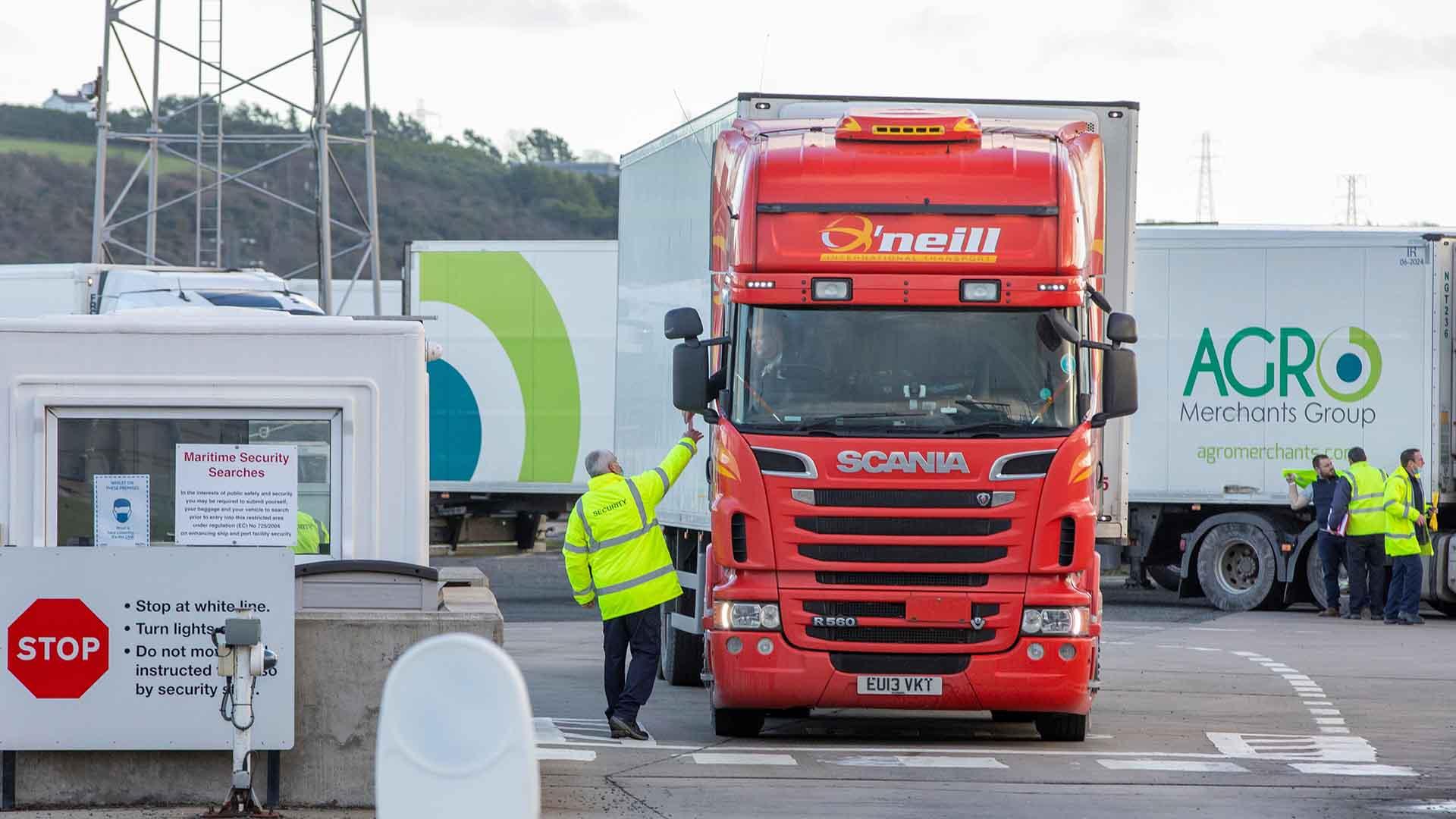Marks & Spencer chief sceptical about EU NI Protocol proposals
- Published
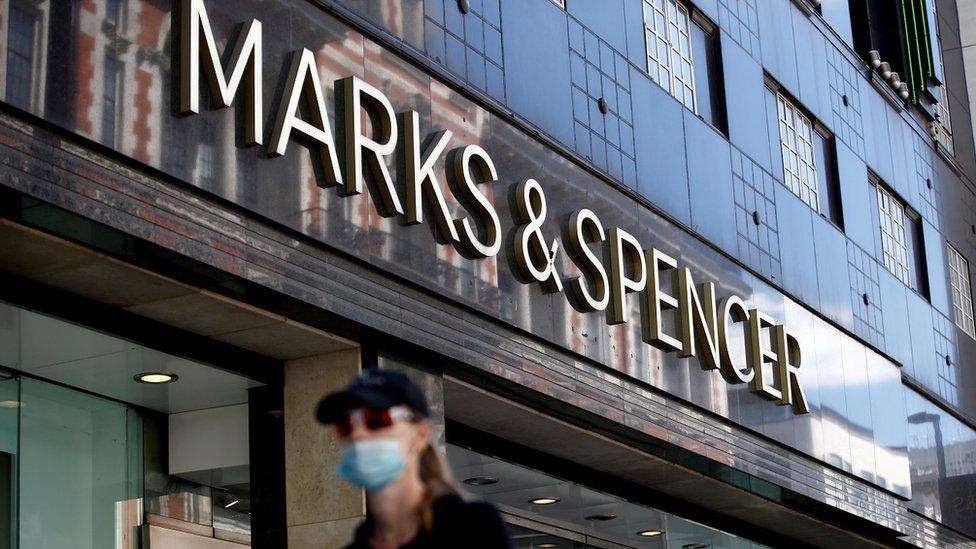
The chairman of Marks & Spencer has expressed scepticism about EU plans to reduce the impact of Northern Ireland Protocol.
The protocol means goods need to be checked as they arrive into Northern Ireland from Great Britain.
The EU has proposed measures which it says should reduce the checks.
But Archie Norman said that the proposals could make the situation worse.
In October, the EU published a plan that it said would halve the amount of customs paperwork and sharply reduce physical checks on goods.
European Commission Vice-President Maros Šefčovič said the proposals would "make a tangible change on the ground".
But the Financial Times has reported, external that Mr Norman has written to UK Brexit minister Lord Frost to say that the offer from Brussels "could result in worsening friction and cost and a high level of ambiguity and scope for dispute".
Mr Norman, a former Conservative MP, said an EU proposal that goods going to Northern Ireland should have 'only for sale in UK' labelling would add £9m of costs.
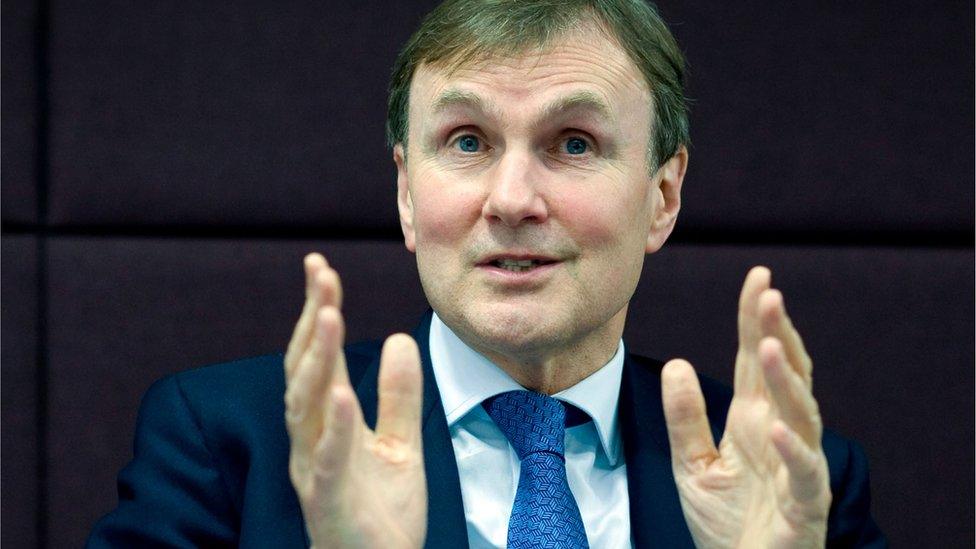
Archie Norman said labelling proposed by the EU would add £9m of costs for Marks & Spencer
He added: "Detailed examination suggests to us that the proposals could end up being more costly to implement than full EU customs controls."
The UK has proposed fundamental changes to the protocol, which remove almost all checks on goods from Great Britain which are intended to stay in Northern Ireland.
Technical talks are continuing this week and Lord Frost is due to meet Mr Šefčovič in Brussels on Friday.
What is the Northern Ireland Protocol?
The protocol is the part of the Brexit deal that prevents a hard Irish border by keeping Northern Ireland inside the EU's single market for goods.
That also creates a new trade border between Northern Ireland and the rest of the UK, something the EU accepts is causing difficulties for many businesses.
It has proposed a package of reforms but the UK is seeking more fundamental changes.
The UK is threatening to use Article 16 of the protocol, which allows for unilateral "safeguard" measures if the deal is leading to serious practical problems or causing diversion of trade.
Those safeguards would amount to suspending parts of the deal, something the EU believes would be unjustified.
On Wednesday, Lord Frost said he believed a deal can be done with the EU but that triggering Article 16 remained a "legitimate option".
He said the UK had proposed "an ambitious compromise" which "involves us accepting responsibility to police goods going into Ireland on the Irish Sea".
"But the other side of that compromise has got to be that goods move freely into Northern Ireland if they're staying in Northern Ireland."
Speaking in Brussels on Tuesday after a meeting with European Commission Vice-President Maroš Šefčovič, Irish foreign minister Mr Coveney said the EU's hope was that a deal could be done soon but they would see by the weekend if that is "realistic or not".
Related topics
- Published17 November 2021
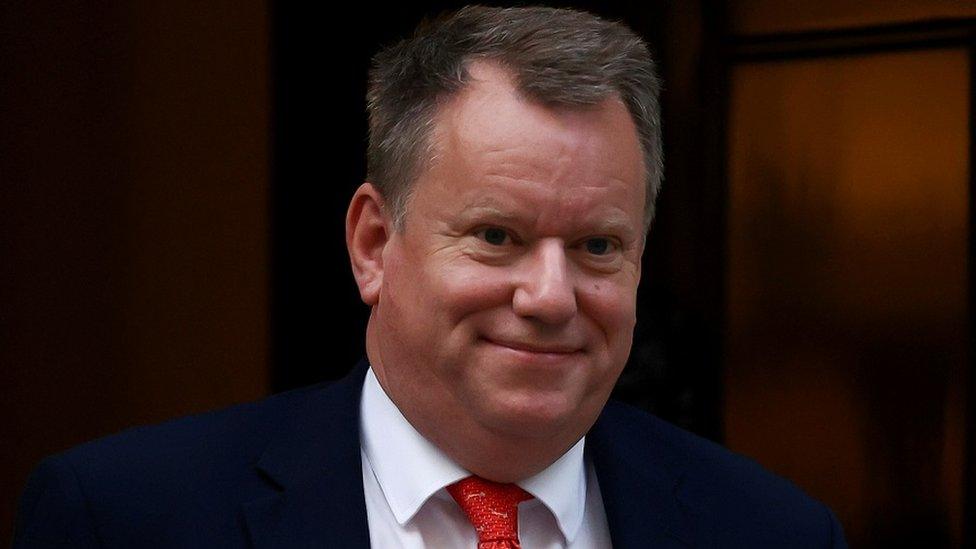
- Published16 November 2021
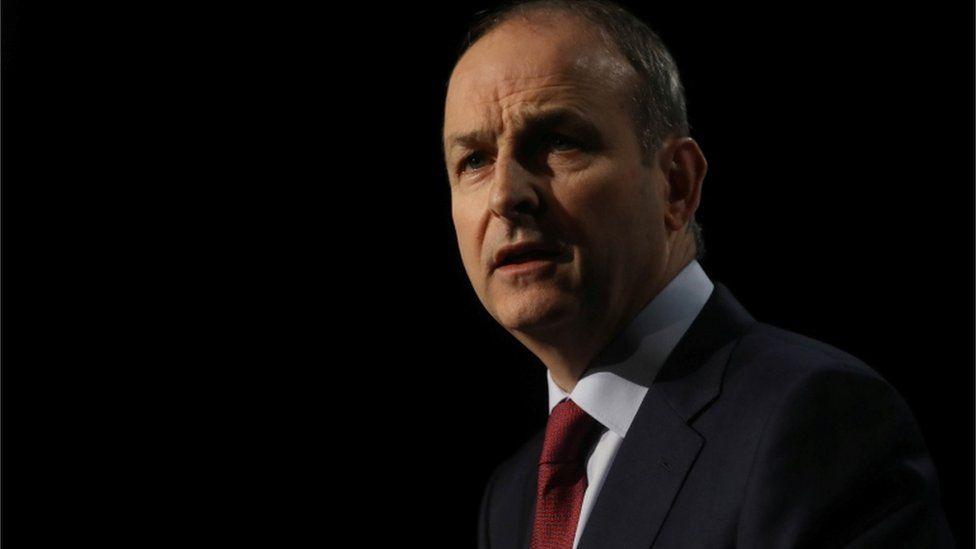
- Published2 February 2024

- Published17 May 2022
